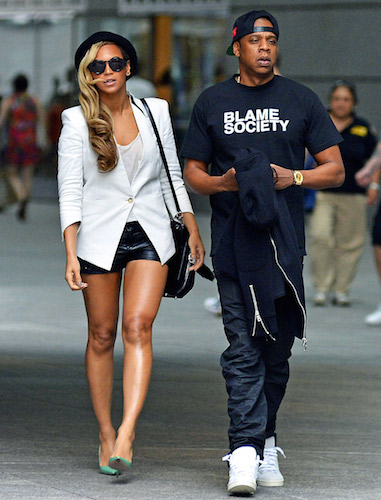It’s official, according to a study carried out by Pew Research Center study, more Americans are trading Christianity for atheism.
Since its 2008 survey into religion, Pew has discovered a significant change in the mindset of Americans, with Catholicism and mainline Protestantism suffering the biggest losses.
The perpetual partisan, also known as Rush Limbaugh, decided to weigh in with an “eloquent” estimation of his own. The radio host blamed the demise of religion, in particular, Christianity, on gay marriage.
Interestingly enough, Elton John once performed at his wedding. A little bit of a head scratcher. In his eyes, evidently, it’s okay for gay people to perform at/attend a wedding, just as long as they are not getting married.
This is the same man who famously blamed President Obama for the weather. Back in 2012, on his radio show, Limbaugh actually called Hurricane Issac an Obama conspiracy, an ingenious, god-like scheme designed to shut down the Republican convention.
Not to be outdone by Limbaugh’s recent outburst, conservative anchor Bill O’Reilly claimed that “people of faith are being marginalized by a secular media and pernicious entertainment.” More specifically, the rap industry, stating that it “often glorifies depraved behavior, and that sinks into the minds of some young people—the group that is most likely to reject religion.”
O’Reilly’s assertions aren’t just flawed, they are deeply troubling. Prior to Pew’s findings, the hosts of MSNBC’s “Morning Joe” cited hip-hop as the number one reason for the racist fraternity culture in the U.S. Perhaps, before suggesting that certain members of Sigma Alpha Epsilon learned the N-word from rap music, the hosts should have done their homework.
Founded in 1856, the first national fraternity in the Deep South predates the birth of hip-hop by well over a century. Additionally, SAE is a fraternity with a controversial history, smeared by prejudicial behaviour. Blaming hip-hop for inspiring racist behaviour is akin to blaming the movie Bad Lieutenant for the behaviour of some corrupt police officers. Why are so many people obsessed with chastising an art form they know very little, if anything, about?
Although Bill O’Reilly may very well be “down with his conservative homies,” his blatant, all too convenient myopia is rather frustrating. There is a distinct difference between hip-hop and rap, a fact that Mr. O’Reilly constantly fails to acknowledge.
In the immortal words of KRS-One, “Rap is something you do. Hip Hop is something you live.”
Firstly, hip-hop is an all encompassing art-form. Formed during the 1970s, this cultural movement was created by African American youths residing in the South Bronx. Comprising of four unique elements, “DJing” or turntablism, b-boying, graffiti art and rap, the term hip-hop is often used to describe the latter component.
Rap, in its truest form, requires consummate knowledge of rhythm and a proficient ability to rhyme. From its conception, hip-hop prided itself on providing the underprivileged with a creative platform to communicate effectively.
By offering an innovative glimpse into the poverty and violence too often overlooked by mainstream media, hip-hop introduced us to the American ghetto, a place most of us know very little about. Chuck D, of the pioneering hip-hop group Public Enemy, once called rap “black America’s CNN.” The seminal artist believed, like so many do, that rap opens the door, inviting the listener into the world of the marginalized underclass.
From Straight Outta Compton, the debut studio album by N.W.A to Kendrick Lamar’s latest album, To Pimp a Butterfly, rap has always shared an intimate relationship with a wide variety of important issues. Even so, conservatives have been denigrating hip-hop (though, they really mean rap) for decades, often criticizing its frequent use of coarse language and the mob mentality it supposedly promotes.
Yes, rap thrives on vulgar language and rebellious lyrics, but, more than any other genre, it acknowledges important issues—inner-city poverty, police brutality, drug abuse and racism.
Religion has always been a part of hip-hop artists’ lives, think back to the days of Grandmaster Flash and the Furious Five. The Message used the following lyrics to establish the significance of the man above: “God is smilin’ on you but he’s frownin’ too. Because only God knows what you’re going through.”
In 2000, a fresh faced Kanye West released Jesus Walks. The Atlanta born artist would eventually go on to label himself the Black Jesus, or Yeezus, to be precise. 2012 saw Meek Mill, a rapper from Philadelphia, release a song called Amen. a track in which he thanks God for affording him with certain things, mainly beautiful women and wealth.
Christianity holds a profound political, social and cultural weight in the world of hip-hop, even if it is exaggerated to sometimes comical proportions. To call hip-hop the catalyst fueling the demise in traditional religious values is simply wrong. There are far bigger issues that need addressing, chiefly the anti-abortion and anti gay marriage sentiments that exist in the United States.
The demise of religious values—blame hip-hop; the racist slurs of young drunks—blame hip-hop; can’t find your car keys—blame hip-hop. Just stop, please.
~
Relephant:
The Art & Heart of Hip Hop.
~
Author: John Glynn
Editor: Travis May
Photo: usmagazine.com







Read 0 comments and reply